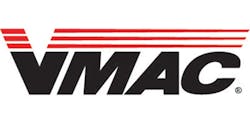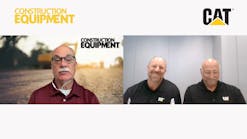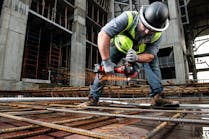VMAC’s 2020 State Of The Mobile Compressed Air Industry Report, which surveyed 205 industry professionals, has revealed the industry’s preferences when it comes to vehicle-mounted air compressors.
According to the report, 67 percent of survey respondents said they preferred rotary screw over reciprocating air compressors. When asked to explain the various reasons they prefer rotary screw, 83 percent noted performance and 29 percent cited size and weight. Out of the 33 percent of respondents who preferred reciprocating air compressors, 48 percent indicated it was because of ease of service/repair, and 43 percent selected price.
“Reciprocating compressors are typically lower duty cycle, sometimes rated for higher pressure, and generally less expensive, but that cost discrepancy is getting smaller and smaller, and is almost non- existent,” explains Brent Thompson, Product Development at Summit Truck Bodies. “Manufacturers are making rotary screw air compressors that far outperform reciprocating compressors, and at a very reasonable price.”
Another 22 percent of respondents said the above-deck gas engine drive option is their preferred method of powering their service vehicle’s air compressor. The second most popular was a tie between the above-deck diesel engine drive and UNDERHOODTM/engine drive, each with 19 percent of the vote.
The survey also found that most operators and survey respondents require under 60 CFM on their service vehicles, and less than 150 psi.
Rob Beukema, Vice President at Work Truck West, said: “There are a lot more choices for end users to consider nowadays, and we are also noticing that application for compressed air has become a lot more specialized for end users. Tooling, repair methods, type of machinery or equipment being worked on, idle or cycle time, duty cycle, truck brand preference and size (payload) along with weld or boost requirements all need to be considered for the right air compressor recommendation.”





